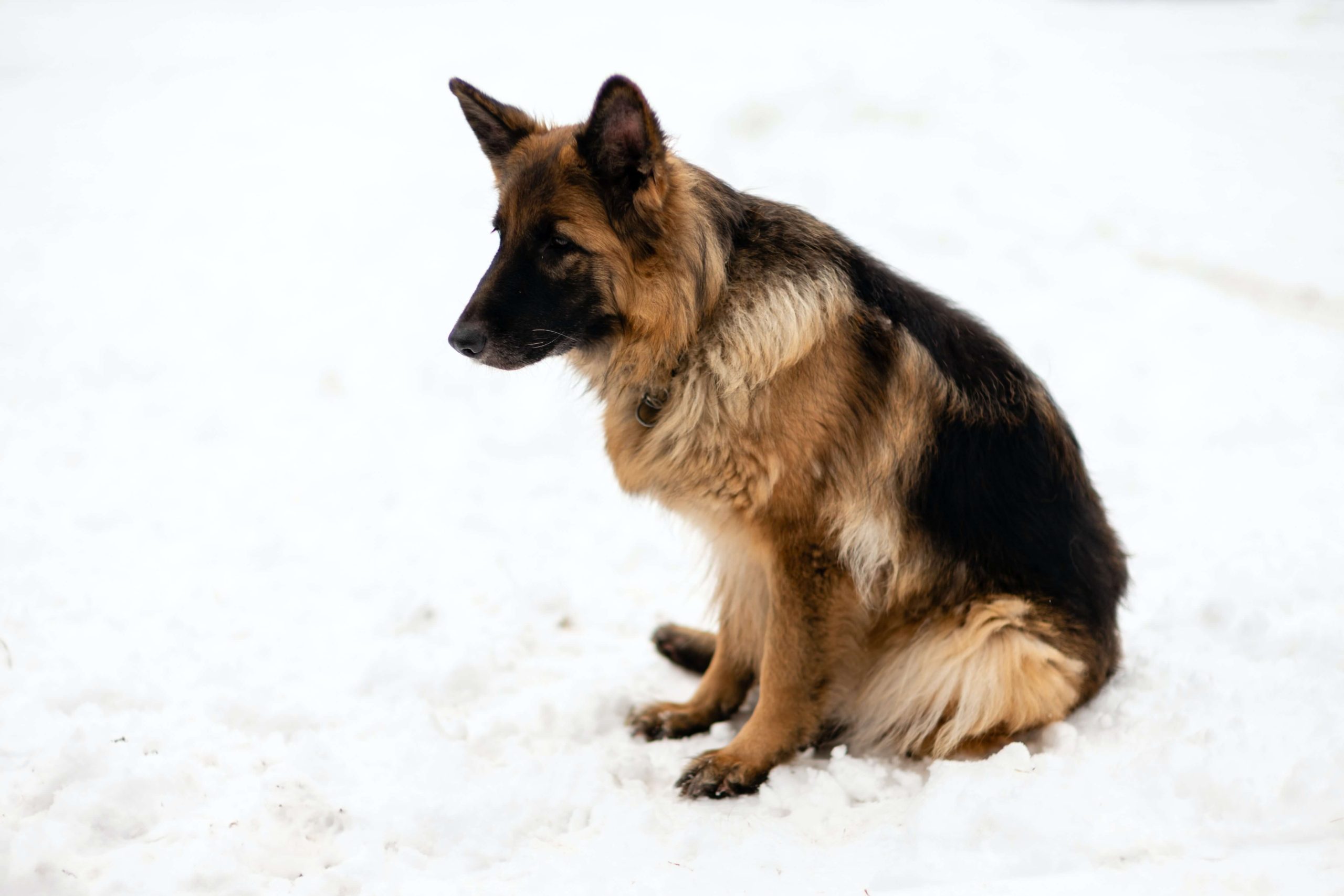Defenition
By diarrhea in dogs, we mean an increase in the amount of stool produced daily, the frequency of defecation, and the water content in the feces.
We can distinguish 2 types of diarrhea in dogs: acute diarrhea- with a duration of less than 7-14 days. And chronic diarrhea, with a duration of more than 14 days. We can further categorize it based on its origin; diarrhea of the small intestine or diarrhea of the large intestine.
What it basically means is that the food passed through the intestine is, for some reason, not digested properly and absorbed into the bloodstream as it should.
Normally food is ingested- digested (broken down into nutrients: proteins, carbohydrates, and fats) by enzymes- and finally absorbed.
Acute diarrhea in dogs causes
Diet
In most cases, we are talking about dietary causes.
Dietary indiscrimination– The first thing the vet will ask you is whether your dog has eaten something unusual, which includes- garbage, non-food objects, toys, plants, or others.
Expired food– make sure his food is not expired but also your food which you might have given to him. Just like for us it can cause an episode of abdominal disturbance.
A sudden change of diet– it happens very often and the owner does not realize that also a sudden change in his diet, even with a good quality product, can cause diarrhea. This is because the gut flora is so used to a particular type of food that when new a new ingredient is introduced it causes a “shock” to the whole system. Hypersensitivity or food allergy– Dogs can be allergic or intolerant to an ingredient found in their diet. It’s quite difficult sometimes to find this ingredient and a quicker solution can be a specialized hypoallergenic food. Bacterial food intoxication
Parasites
Very common and underestimated. Intestinal parasites whether we are talking about worms that are sucking blood from the intestinal wall or intracellular parasites that are destroying intestinal cells, they both damage the integrity of the gut, and thus the function of absorption.
All puppies and kittens should have their feces examined and have a dewormer treatment. You do not always see the worms and that may elude you your pet is parasite-free. So make sure you have him dewormed as soon as you can, don’t wait too long with it, the consequences can become very severe.
Infectious
As for parasites, also other pathogens like bacteria or viruses can cause serious intestinal damage. Among them, you have parvovirus (puppies especially!), coronavirus, rotavirus, paramyxovirus, adenovirus, fiv, felv, salmonella, campylobacter, clostridium, e.coli,
The best way you can prevent this is by good health, hygiene, early vaccination, quality diet.
Anatomic causes for diarrhea in dogs
- Intussusception is defined as the invagination of a segment of the gastrointestinal tract into the lumen of an adjoining segment
- Addison disease (hypoadrenocorticism)
- Peritonitis
- Acute pancreatitis
- Hemorrhagic gastroenteritis
Chronic diarrhea causes:
Indigestion
When the food is not digested properly, -mainly due to :
Exocrine pancreatic insufficiency (EPI) causes problems in how your dog digests food. His pancreas doesn’t make enough of the enzymes that his body needs to break down and absorb nutrients
Malabsorption
- Food intolerance or food allergies
- Antibiotic Responsive enteropathy (ARE)- related to simple dysmicrobism
- Inflammatory Bowel Disease (IBD)
- intestinal neoplasm- intestinal lymphoma
- Parasitic infection of the gut- giardia or helminths
- Gastrointestinal fungal infections- especially in immunocompromised patients
Protein-losing enteropathy
Protein-losing enteropathy refers to any condition of the gastrointestinal tract that results in a net loss of protein, most commonly albumin, from the body.
Normally the General conditions of the dog can be quite severe and include other symptoms like weight loss, abdominal swelling due to accumulation of fluids, lack of energy (lethargy), and difficulty breathing (due to fluid accumulation in the chest cavity).
Protein-losing enteropathy in dogs can be caused by intestinal lymphangiectasia, IBD in severe form, intestinal lymphoma, chronic Intussusception, gastrointestinal hemorrhage, and massive parasitic infestation.
Some diarrhea in dogs are responsive to fibers
Insoluble fiber absorbs water, so it can attract moisture from outside the colon in order to soften up a dog’s stool. On the other hand, it can also combat dog diarrhea by absorbing excess water inside the colon.
When your dog has diarrhea, also pay attention to other symptoms:
- Vomit
- Inapettance
- Weight loss
- Itching or skin alteration- food allergies
- Abdominal gas
- Inactivity
->All these can help the vet get a better idea about the cause and origin of your dog’s diarrhea.
What are the remedies for diarreha in dogs?
Food restriction– First of all be aware of what what your dog has eaten and restrict his diet at least for the next 14 days- no treats, no greasy food, no “human food”, only his food, and preferably a specialized gastrointestinal food.
Probiotic– It’s always a good idea to give your dog probiotics (for dogs, NOT humans). It will help restore your dog’s normal gut flora.
Rehydration– Provide a lot of fresh water, your dog has lost a lot of fluids and needs to be rehydrated. In some more serious cases, he might need subcutaneous or intravenous rehydration.

When should you take your dog to the vet?
The earlier the better. Diarrhea, although common and often is quickly resolved, can be quite serious if untreated. The owner will not, in most cases, know the cause and therefore will not be able to give the right therapy.
If you give your dog specialized food and probiotics but still don’t see any result after a few days, go to the vet. He might need antibiotics, rehydration, and sometimes an x-ray to better understand the overall situation.
Diarrhea in dogs- The metaphysical meaning
As we know, there is always a deeper meaning to our illnesses. Your dog is experiencing diarrhea which is a symptom. What is his body communicating to you? It might concern his well being or emotions or yours. Animals are also greatly affected by our mental and emotional states so if a particular situation occurs to them you should also consider how your life is and how you feel.
Any symptom is practically a magnification of the cause. That means, how the symptom makes you feel is really the main cause of the symptom.
-What’s the symptom. In this case; Diarrhea.
-How does this symptom make you feel; Unable to control yourself, fear of letting go.
-The cause; Loss of control.
To go to an even deeper understanding consider that this emotional/mental cause is also a symptom.
The real cause Is a trauma (big or small) that has created resistance in one (or more) of your chakras. The resistance is like a block for the perfect flow, and this is the reason why symptoms are manifested within different body parts in different individuals. It depends on where the weakness is.
So also consider for a broder healing:
Where is the resistance – which chakra? and how to heal it (meditation, reiki, and more)
Please, let me know your thought, your doubts, if you have any questions, some topics I did not cover, contact me, I will be happy to help!




